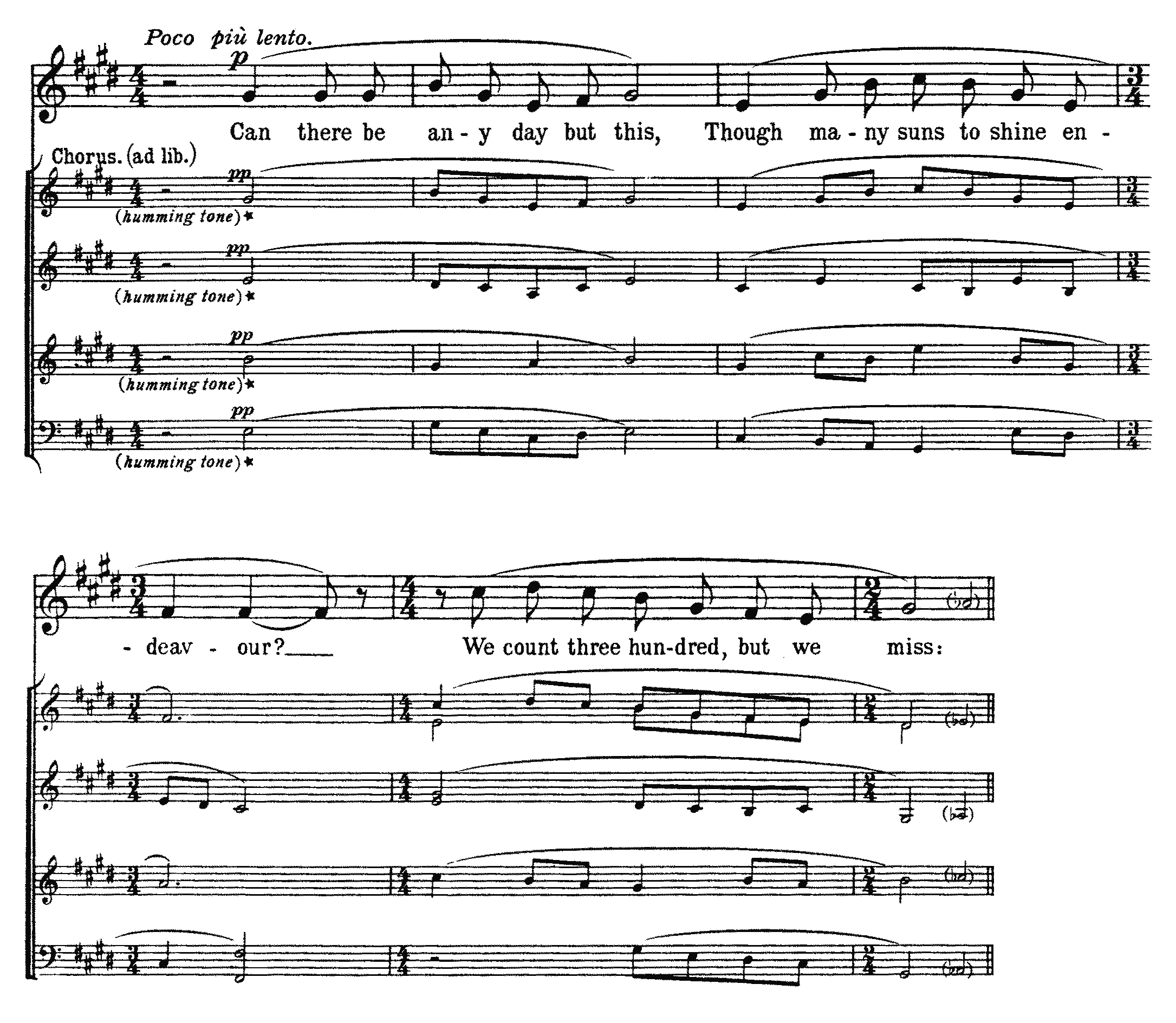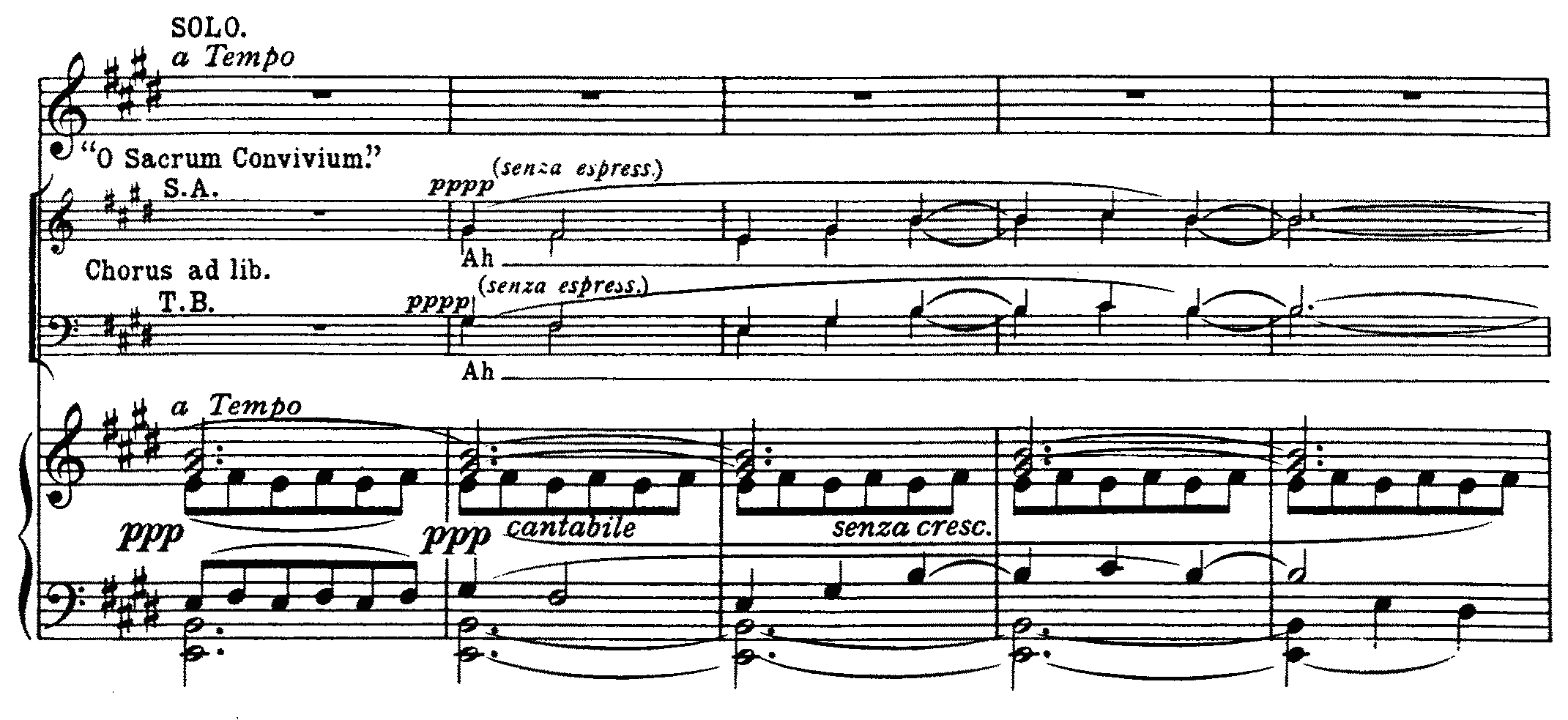Dramatic Vocalise Database
Ralph Vaughan Williams (1872–1958)
Five Mystical Songs (1911)
In 1911, Vaughan Williams pursued parallel interests [as Holst’s] in the mystical/religious poetry of George Herbert (1593–1633). The premiere of the Five Mystical Songs, to text of Herbert, was conducted by Vaughan Williams in September 1911 during the Three Choirs Festival in Worcester. The songs, grouped together by the composer and not the poet, are settings of intensely religious verse. According to Hubert Foss:
In the Five Mystical Songs our Christian God appears in a religion which is uninstitutional: in a faith that accepts no local tradition, but only the Christian Church as England once saw it; a faith prone to pantheism rather than to conservatism of forms; a faith that might find in the external aspects of the Cathedral an inspiration, but would have little traffic with its later conventions. The Five Mystical Songs, in a phrase, give us the English faith without the trammels of weekly parish usage: they express the creed without the need for Dean and Chapter.1
The Five Mystical Songs can be performed by voice and piano alone, with chorus and organ, or with orchestra. In the second and third songs, wordless choral passages foreshadow the use of dramatic vocalization in Vaughan Williams’s later works. In the second song, “I got me flowers,” the words “humming tone” appear next to the chorus parts, and a footnote further clarifies: “Not with closed lips, but with the sound of a short ‘u’ as in the word ‘but’.”

Vaughan Williams, Five Mystical Songs, no. 2, “I got me flowers,” mm. 33–38
2Note the similarity to Holst’s score indication for Sāvitri, “They are to sing throughout to the sound of ‘u’ in ‘sun.’” 3 In this song, the chorus only hums these two phrases before joining in with the soloist for the last phrase of text, “There is but one, and that one ever.” Here the [wordless] chorus functions as instrumental color, a different timbre, like an organ stop, and does not play a dramatic role.
In the third song, “Love bade me welcome,” the chorus, marked pppp (senza espress.), enters singing the melody of “O Sacrum Convivium” on the vowel “Ah” before and after the soloist sings the last line of text: “‘You must sit down,’ says Love, ‘and taste my meat:’ So I did sit and eat.”

Vaughan Williams, Five Mystical Songs, no. 3, “Love bade me welcome,” mm. 64–68
4According to Hubert Foss:
“Love bade me Welcome,” . . . is a talkative piece, in style expository, but neither modal nor tonal. . . . We can find the mystical humility and faith of the poet. Our troubles are solved in the major tonality of “O Sacrum Convivium,” and though the words “go slack,” when this other love “took my hand,” we bridge the years in hopefulness. 5
“O Sacrum Convivium” is a traditional prayer honoring the Blessed Sacrament. The implied text of the prayer reinforces the mystical meaning of Herbert’s poetry:
O Sacrum Convivium, in quo Christus sumitur: recolitur memoria passionis eius; mens impletur gratia et futurae gloriae nobis pignus datur.
[O Sacred Banquet, in which Christ is received, the memory of His Passion is renewed, the mind is filled with grace, and a pledge of future glory given to us.]
Ultimately, the Five Mystical Songs are more striking for what they foreshadow than for what they achieve. Wordless chorus appears as dramatic vocalization in Vaughan Williams’s Pastoral Symphony (1921), Flos Campi (1926), Riders to the Sea (1936), the film score to Scott of the Antarctic (1948), and the ensuing Sinfonia Antartica (1952). Also, a musical motive included in the third of the Five Mystical Songs recurs in many of these same pieces.

Vaughan Williams, Five Mystical Songs, no. 3, “Love bade me welcome,” mm. 18–21
6(Nauman 2009, 151–54)
Examples | Comments |
| II. “I got me flowers” |